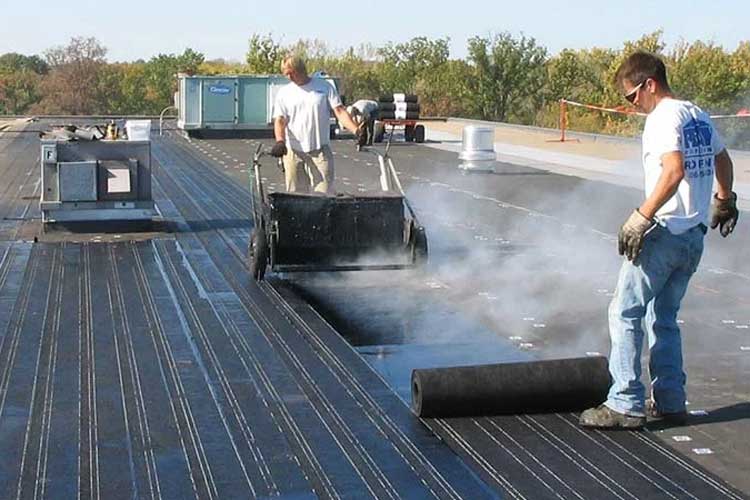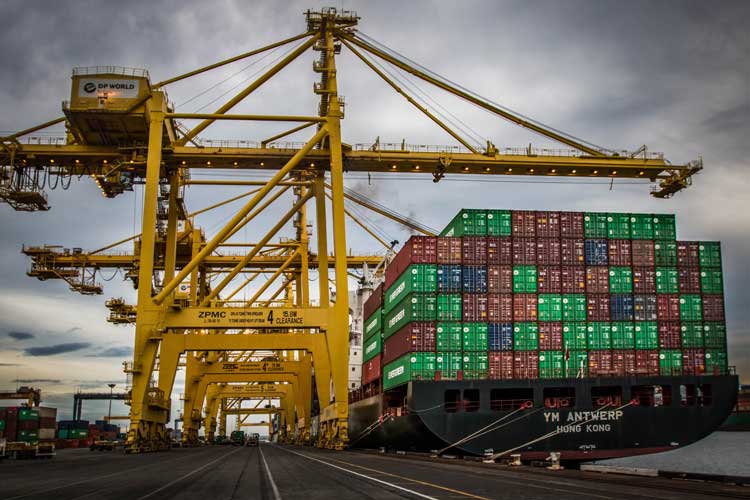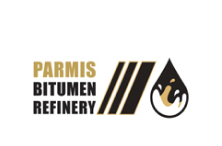One of the main commercial centers in the area and a major player in the world bitumen market is Jebel Ali Port. The bitumen price of Jebel Ali serves as an important indicator for evaluating regional construction costs, infrastructure projects, and export trends across Asia, Africa, and the Middle East.
Understanding the factors influencing Jebel Ali bitumen prices helps investors, contractors, and traders make more informed decisions in this dynamic market. In this article, we will discuss the bitumen price of Jebel Ali.
Overview of Bitumen Market in Jebel Ali
Jebel Ali (including the Jebel Ali Free Zone, JAFZA) has become a regional hub for bitumen storage, processing, and trade, driven by its strategic location, port infrastructure, and rising demand from both local infrastructure projects and export markets. A key recent development is that Ocean Petro Gulf (OPG) has taken over operations of the bitumen terminal in JAFZA from Tristar, including an 11,000-tonne storage capacity.
They plan to add another 10,000 tonnes of bitumen storage, and the terminal also includes facilities for polymer-modified bitumen (PMB) production (≈90,000 tonnes/year), an emulsion plant, drum filling, and testing. Meanwhile, Shell had already expanded its bitumen storage in JAFZA with an 8,000-tonne cold bitumen tank tied to a hot-oil heating unit to support value-added bitumen products.
On the demand & supply side, local infrastructure expansion (roads, industrial zones, possibly port & free zone related internal roads) is pushing up demand, both for standard penetration grade bitumen and higher performance bitumen like PMB and emulsions. The storage & logistic capacity expansions (e.g., by OPG, by Shell) aim at meeting this rising demand and also facilitating export flows.
Rising shipping and container costs, particularly for areas importing drummed bitumen, as well as possible geopolitical and export logistical disruptions in the broader Middle East that could impact trade flows, are some of the challenges associated with supply and market risk.
Additionally, the bitumen grades that are supplied and demanded are increasingly being shaped by technical performance, environmental, and regulatory requirements (such as higher specification PMBs).
Current Bitumen Prices in Jebel Ali Port
As of October 6, 2025, bitumen prices at Jebel Ali Port in the UAE reflect a steady market influenced by global oil trends. The cost for bulk bitumen stands at approximately $456 per metric ton (MT) on a Free on Board (FOB) basis. This price point is consistent across various grades, including 60/70, 70/100, and 80/100, indicating a stable supply-demand balance in the region.
For packaged bitumen, such as bitumen 85/100 grade in new steel drums, the price is typically quoted on a Cost and Freight (CNF) basis to destination ports. While specific CNF prices to Jebel Ali are not detailed in the available sources, the general trend suggests that prices for 85/100 grade bitumen range between $390 and $400 per MT when shipped in drums to various international ports.

Factors Affecting Bitumen Price of Jebel Ali Fluctuations
Several key factors influence bitumen prices at Jebel Ali Port.
- Crude Oil Prices: Bitumen prices are directly linked to changes in the world oil price through crude oil refining. A $10 increase in crude oil prices typically results in a $30–50 rise in bitumen prices per metric ton.
Supply and Demand Dynamics: The balance between supply and demand significantly impacts bitumen prices. Increased demand from construction and infrastructure projects can drive prices up, while oversupply or reduced demand can lead to price declines. - Transportation and Freight Costs: Logistics expenses, including shipping and port tariffs, affect the final price of bitumen. Higher transportation expenses can lead to increased bitumen prices at the port.
Currency Exchange Rates: Fluctuations in currency values, particularly the US dollar, can impact the cost of bitumen imports and exports, influencing local pricing.
Geopolitical Events: Instability or conflicts in oil-producing regions can disrupt supply chains, leading to price volatility in the dubai bitumen market.
Seasonal Factors: Certain times of the year may see increased demand for bitumen due to construction cycles, affecting pricing trends. - Comparison of Jebel Ali Bitumen Prices with Regional Markets
As of October 6, 2025, bitumen prices at Jebel Ali Port in Dubai are notably higher compared to several regional markets. For instance, the price of bitumen 60/70 grade in new steel drums is approximately $456 per metric ton (MT) on a Free on Board (FOB) basis at Jebel Ali.
Bitumen Cost. On the other hand, nearby areas provide more affordable prices; for instance, Bandar Abbas in Iran lists the same grade for about $386 per MT FOB. Similarly, Bahrain’s prices are reported at $400 per MT FOB. These price disparities can be attributed to various factors, including differences in production costs, transportation expenses, and regional supply-demand dynamics.
Forecast for Bitumen Prices in Jebel Ali
Through the rest of 2025, bitumen prices at Jebel Ali Port are anticipated to fluctuate moderately due to regional demand, global oil trends, and geopolitical events. As of early October, bitumen 60/70 grade in brand-new steel drums costs about $456 per metric ton (MT) when purchased free on board (FOB). This reflects a stable pricing environment following a dip to $320 per MT in late June 2025, attributed to reduced infrastructure spending and market adjustments.
In the future, prices are anticipated to stay between $360 and $420 per MT, depending on variables like changes in the price of crude oil, activity in the construction industry, and local supply-demand relationships. Even though long-term projections show a stable demand for bitumen worldwide, stakeholders should be prepared for possible short-term volatility brought on by these influencing factors.
Conclusion
In summary, the bitumen market in Jebel Ali continues to be an essential standard for regional building and infrastructure projects, representing both local supply-demand dynamics and worldwide trends in crude oil. Jebel Ali’s advantageous location and state-of-the-art port facilities enable competitive pricing and efficient distribution of high-quality bitumen types, including bulk bitumen and bitumen 85/100. Stakeholders—from contractors to exporters—closely monitor these prices to plan procurement, manage costs, and optimize project timelines. As regional development accelerates, the port’s bitumen prices are likely to remain a key indicator of market stability and investment opportunities in the Middle East and beyond.


